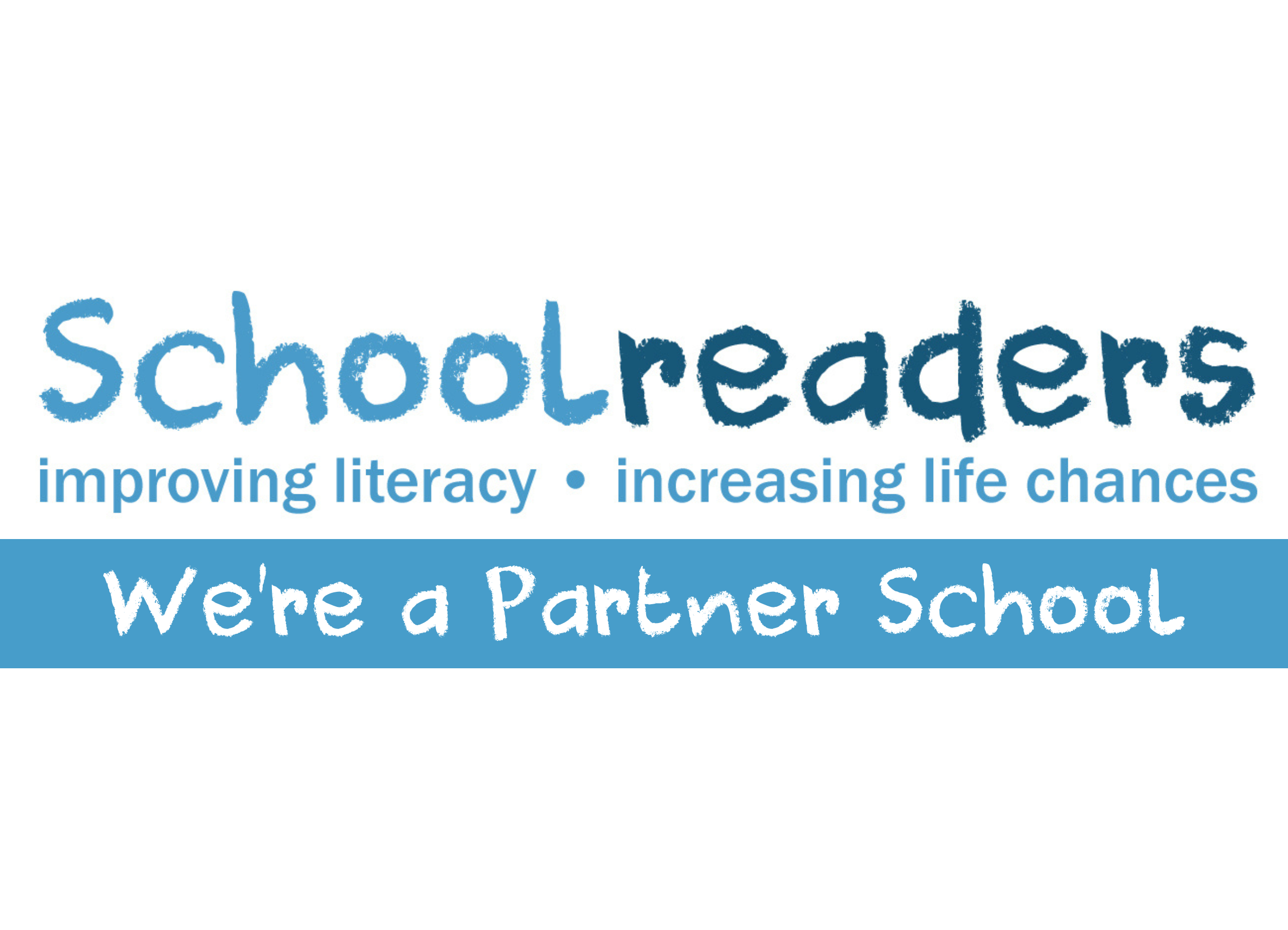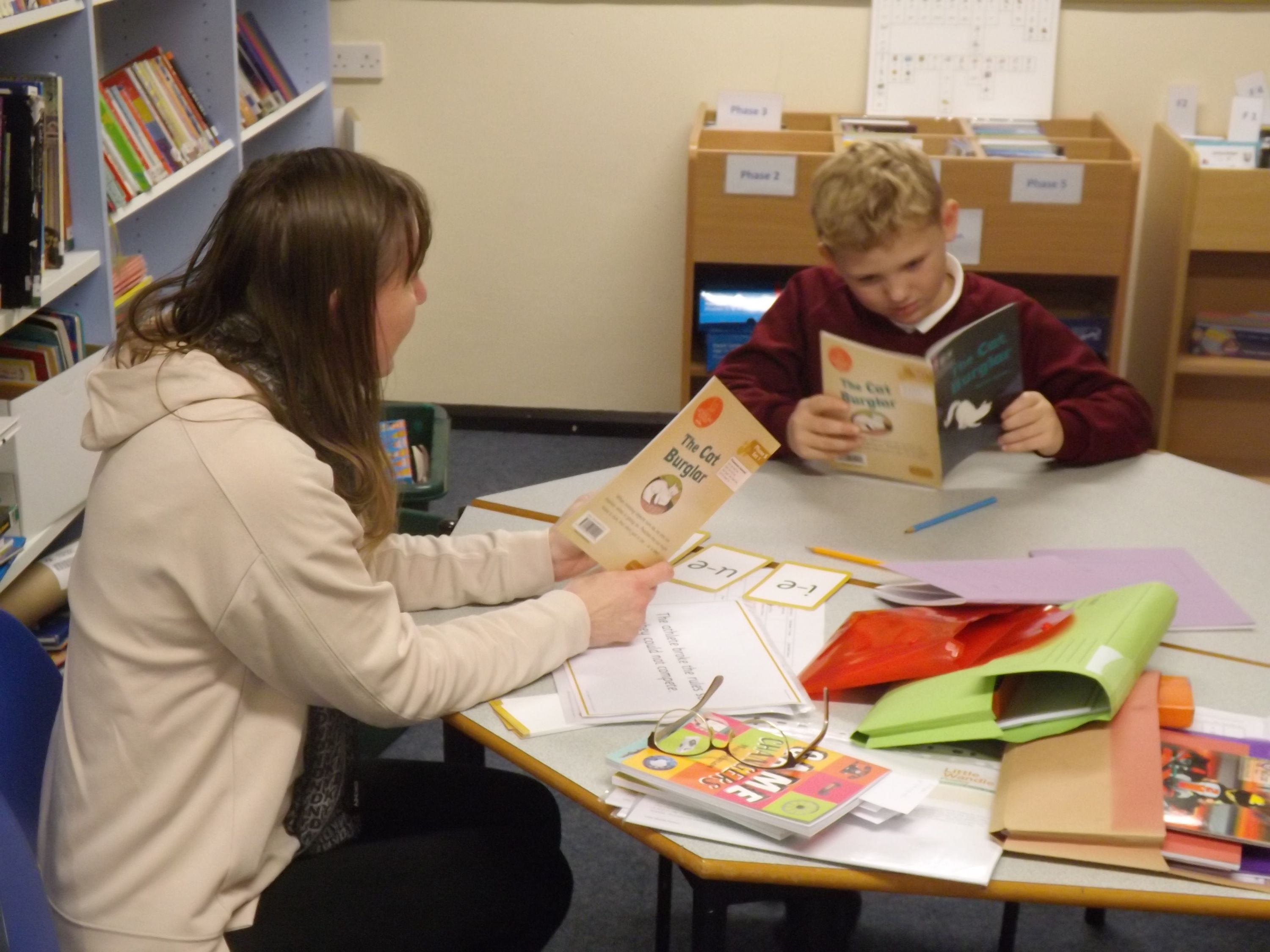Reading
(Please see a helpful reading prompt for parents to support their child with reading and our reading spine at the foot of the page)
At Ormesby, Reading is a vitally important skill we ensure all our pupils thrive in. Alongside this, we endeavour to establish a Reading for Pleasure culture and it is hoped that this ethos can be mirrored in the home, so that our children can develop into being lifelong readers.
To support our reading development further, the school uses the Jane Considine Hooked on Books approach, where pupils are taught the complete set of tools and structures to apply to their reading in all contexts. Fluency, prosody, comprehension skills, broad and unfamiliar vocabulary (bonus words) combine to enable children to talk about the books they are reading. Across each week in our Lower Key Stage 2 classes (Years 3 and 4), greater emphasis is placed upon teaching reading fluency. This concentrates on discussion about quality texts, prosody, reading styles and the techniques and mechanics of reading. Each week, classes are also taught reading comprehension skills driven by the desire to ensure pupils understand what they are reading through these guided reading sessions. In Upper Key Stage 2 (Years 5 and 6), classes have more of a balance of reading fluency and comprehension sessions each week. Teachers follow a reading spine across the school, where quality and enjoyable texts from a broad range of authors are shared with one another each term. Year 6 pupils are also given a balanced exposure to the style of SATs questions that they will face during a reading paper. Please find our detailed reading spine attached below, which contributes well to our overall curriculum theme of discovery and effectively exposes our pupils to diversity.
Reading for Pleasure pedagogy has four core practices:
- Reading aloud to the class for pleasure
- Creating diverse, supportive, social reading environments
- Talking about books, making recommendations to individuals and the whole class.
- Creating opportunities for children to read independently for pleasure and giving them choices about what to read.
What does Reading for Pleasure look like at Ormesby?
- Reading aloud daily – Pupils choose from a selection of books; pupils read in the library or within a relaxing space in the classroom and both pupils and adults read aloud. Pupil reading is done chorally, in an echoing style or with a partner.
- Reading spaces - Pupils get comfortable in the class, corridors, playground or in the library. They can sit, lay or lounge whilst reading.
- Reading displays - Our love of reading is promoted from the top 100 books we need to read before we leave primary school to the texts supporting our phonics.
- Visits to the school library and beyond - Each class visits our school library across the week and our local libraries speak to our pupils about current reading events or competitions they are hosting to attract pupils to read more.
- Build time to talk about books - Classes have Reading Partners or Book Buddies to share what has appealed to them from the books they are reading or have read. Children often recommend to books to one another.
- Encourage reading in the playground - Books are available to pupils to take out and read if they so wish.
- Book Clubs - At different times in the year, book clubs after-school or at lunchtimes for boys and girls are run to encourage reluctant readers or to stimulate an existing passion for reading. Staff members also read chapters of stories during the Family Library Club, where children and relatives can come and enjoy our library.
- Establish regular independent reading time - Each class dedicates a certain amount each day for reading a class novel or enabling pupils to read their own material.
- Offer a wide choice of reading material - Pupils can access our library or staff provide access to a choice of different texts as a whole class novel.
- Model good reading practice - Pupils regularly see staff reading aloud to them through class novels or on themed occasions, such as World Book Day.
- Pupils from each year enjoy a daily guided reading/comprehension sessions practising the key elements needed to understand and enjoy texts.
- Reading Interventions using Little Wandle Rapid Catch-Up 7+ approach takes place each day to enable children to improve their reading abilities and achieve our aim of making all pupils confident, independent and fluent readers by the time they reach Year 5. Using this programme to develop less confident readers ensures our pupils have continuity from our Infant school, where Little Wandle is the chosen Systematic Synthetic Phonics approach. Our school also uses the SEND and Fluency packages available to us from Little Wandle.
Reading Teachers: teachers who read and readers who teach.
All our teachers are both readers and teachers, and share their own experiences of reading with their classes. This enables them to develop stronger readers within their classes. By sharing their own experiences of reading, these teachers made a positive impact on children’s desire to read and on the frequency of reading they undertake at home and at school. We also have early reading experts on staff, who ensure children arriving from our Infant school still in need of more reading support, receive this consistently and effectively.
Reading Champions
In school, we have a group of Reading Champions from Year 6, who model our high expectations for reading across the school. They help to manage and maintain the library, they lead reading groups recommending book titles during break times and they listen to younger children read. We are very pleased with their efforts in establishing a higher profile for reading.
Reading Communities
A reading community is where shared understandings are established about the changing nature of reading and the value of everyday reading practices. Reading communities generate new kinds of talk about reading, both with and amongst children. Our hope is to conduct more reading cafes where parents are invited into share their reading history and inspire their own children to be passionate about reading and become a reader for life. In our Infant school, we hope to implement Secret Readers (volunteering parents) visiting in their professional roles to read stories to the children modelling a love of reading. We also have volunteer readers across the school hearing children read on a weekly basis. We also promote reading throughout the school.


